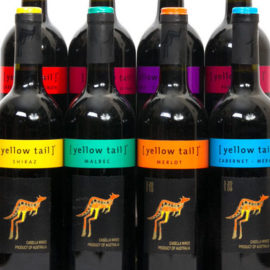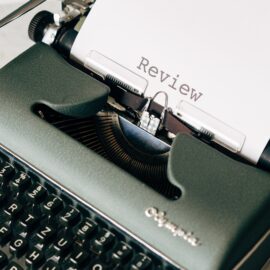

This article is an excerpt from the Shortform book guide to "Unreasonable Hospitality" by Will Guidara. Shortform has the world's best summaries and analyses of books you should be reading.
Like this article? Sign up for a free trial here.
Why is restaurant communication so important? How did the prestigious restaurant Eleven Madison Park (EMP) thrive by prioritizing communication?
In Unreasonable Hospitality, Will Guidara goes into detail about how he transformed the poor relationships at EMP by communicating the values of the restaurant. In return, the employees openly shared what they wanted the restaurant’s culture to look like.
Keep reading to learn more about the importance of restaurant communication.
Clarify and Communicate Your Priorities
When Guidara joined EMP, the restaurant was suffering from poor relationships and restaurant communication, and erratic levels of service. In an effort to transform the brasserie into a three-star restaurant, Meyer had brought on several service professionals who’d trained in fine-dining restaurants and so brought with them a set of expectations regarding how a fine-dining restaurant is run. The original EMP staff bristled at these expectations, which were both new and confusing given that different managers had different standards for the same thing. For example, one server was made to hold a tray in two different ways by two different managers.
(Shortform note: Guidara’s description of how the EMP team functioned when he arrived reflects what The Five Dysfunctions of a Team author Patrick Lencioni calls inattention to results. This is when team members focus on what’s good for them rather than their team—like the two managers who wanted the server to hold the tray in whatever way each one thought was right. Solving this problem requires making the expectations clear (like deciding which way to hold the tray) and linking rewards to the achievement of specific outcomes (like doing a certain task correctly) rather than vague outcomes (like “working hard”).)
After spending some time learning how EMP ran things and why it wasn’t working, Guidara’s focus turned to clarifying and communicating the restaurant’s priorities. Guidara started by having a daily 30-minute meeting shortly before the restaurant opened. This meeting served two important purposes: First, it made clear to the staff what they needed to know—since Guidara required the managers to share typewritten handouts that he’d pre-approved. Second, it gave Guidara a regular opportunity to reinforce the culture he was trying to build; Guidara regularly praised employees’ successes and shared stories to inspire a good night’s work.
(Shortform note: Guidara conducted meetings in a way that aligns with the experts’ recommendations for having the most efficient meeting possible. He had clear objectives for the meeting and clear indicators of success, and he insisted on having all necessary materials prepped in advance. And while experts agree that having a regular meeting helps clarify and communicate your company’s priorities, there are other methods, too. For example, you could focus on embodying those priorities yourself as a leader and instituting rewards for employees who embody your core values.)
Then, several months into his tenure, Guidara invited all the staff to a “strategic planning meeting.” He wanted the entire team to have a voice in deciding what type of restaurant they wanted to build. After some discussion, the team landed on the pillars that would define their culture—notably, excellence and hospitality. Guidara contends that these two concepts are somewhat contradictory, given that excellence involves meeting an exacting standard while hospitality involves connecting with the guest—sometimes to the detriment of that exacting standard. But acknowledging that both were important gave them the tools to provide the best experience possible for their guests.
| The Benefits and Risks of Letting Your Team Choose Your Values Guidara wanted the entire team to define EMP’s culture, which may have improved the effectiveness of the team. In Smarter Faster Better, Charles Duhigg explains that psychological safety—the belief that you can share your opinion without being immediately rejected—is a hallmark of an effective team; you can develop this safety by demonstrating to team members that their voices matter, as Guidara did. But what if you ask your team to name your company values, and they return with contradictory values—as Guidara’s team did? Consider following The Happiness Trap author Russ Harris’s advice: Define which value is most important and which is most urgent; knowing these will help you decide what to do when conflicts arise. |

———End of Preview———
Like what you just read? Read the rest of the world's best book summary and analysis of Will Guidara's "Unreasonable Hospitality" at Shortform.
Here's what you'll find in our full Unreasonable Hospitality summary:
- How Will Guidara turned Eleven Madison Park into the World's Best Restaurant
- Why service-based businesses should go above and beyond for customers
- Guidara's lessons he learned from each stage of his business journey






